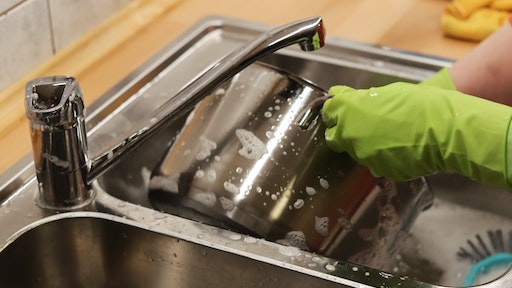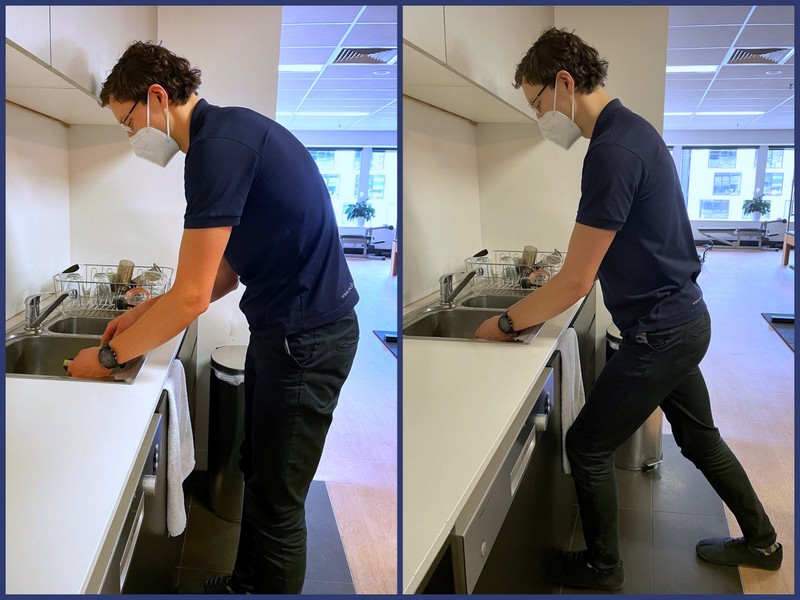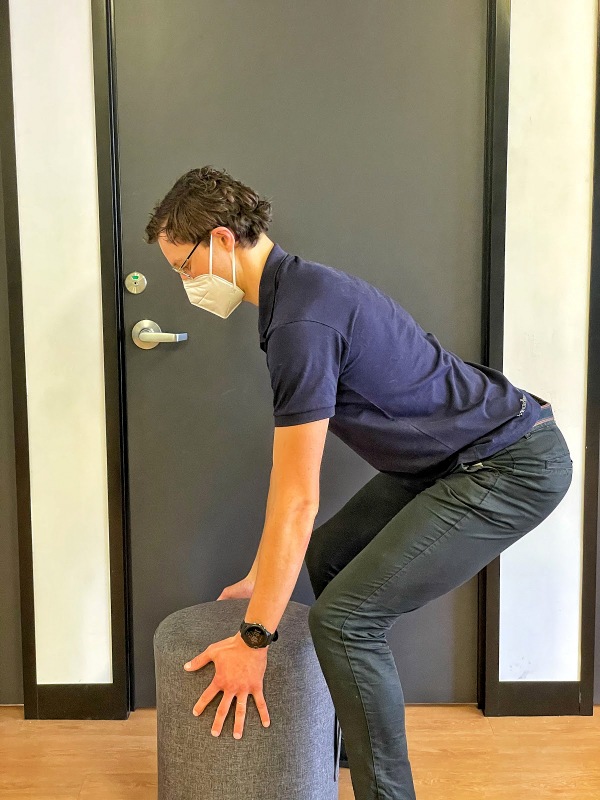By Dr Brendan O’Loughlin (Osteopath) |
‘Dishwasher’s back pain’ is very common and thankfully there are some simple ways to alleviate it.
What causes the pain?
When hand washing dishes in the sink, we almost always have to reach down a little – we can’t usually stand upright. This creates a shallow bend in our spine. Ideally, we would do this with a slight bend in both the back and legs. Sometimes there can be existing lower back pain that is aggravated by this slight forward bend (flexion). This pain can become progressively worse over the 5–10 minutes you might spend washing the dishes.
This same issue can arise when stacking a dishwasher or while brushing your teeth. Lumbar disc bulges, facet joint sprains, muscle sprains and ligament injuries are all common lower back injuries potentially affected by these everyday tasks.
Tip #1: Bend your knees not your back when washing the dishes
Compare these two images:
- Left: demonstrates a type of posture that commonly causes back pain.
- Right: demonstrates a type of posture that may help alleviate back pain.
The stoop position (on the left), can cause pain in a similar way to lifting from the ground with a bent back. The mid-back is bent forward or flexed. This means it curves forward in a hunched position. The legs are straight meaning the muscles aren’t doing much work. This slight bend can be enough to irritate the lower back.
The way to prevent pain from the stoop position is to take a split stance, which allows the back to remain straight. It encourages the legs to bend, rather than your back. Just like your parents told you…” bend your knees, not your back.” This allows you to get your hands to the sink and take some load off your back. You can swap legs halfway through the load of dishes.
Tip #2: Practice lifting with a straight back to strengthen your bent-knee position
Notice how the deep bend in the knees allows the back to remain straight when lifting from the ground.
Osteopathy and exercise rehabilitation can help address lower back pain by training this movement pattern. There’s no point putting up with pain and just trying to guess what’s wrong. If you are in pain, get it checked out. As Osteopaths, we assess your body, look at how you move and then create a movement solution that addresses what is causing the issue. Manual therapy can also be an effective way to manage pain and help set you up to move better, be stronger and recover quickly.
Summary
- Bend your knees, not your back
- Practice lifting to strengthen your back
- Get checked out if you’re in pain
Dr Brendan O’Loughlin (Osteopath) has experience treating all sorts of different back and spine issues. If you are experiencing any back pain, or would like to discuss any other complaint, you can contact us at any time:
- (03) 9939 1289
- info@melbourneosteopathycentre.com.au
- Book a consultation online



